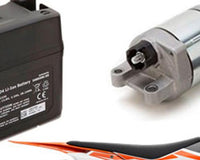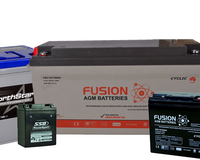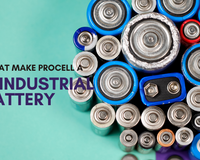With power bills growing at an insane pace, going off the grid is becoming a more popular option for people these days.
Going off-grid is defined as a system and a lifestyle. It involves disconnecting your home from remote infrastructure, in this case, the power grid.
It's not as easy as it sounds and getting your home set up as an off-grid residence can be very costly at the beginning.
1. Consider all the costs
Going off-grid isn't just a matter of throwing some solar panels on your roof and plugging in a battery, you need to consider all the little factors involved.
Factors such as:
- What type of battery you'll need (Capacity, AH, Li-ion or AGM etc)
- Solar panel capacity
- Installation costs
- Ongoing maintenance costs
- The price of energy bills
You also need to think about whether or not you have the roof space to accommodate the PV solar panels that you'll need.
2. See it as an investment
Going off the grid will cost you a lot of money in the early stages. Assuming you have an average-sized home, you will need more than a standard eight-panel system to power the entire place, and a good battery to store the energy.
Large solar systems and high-performance batteries cost a lot of money, and remember, you get what you pay for.
3. Lifestyle Changes
As we said, Going Off-grid is a lifestyle. People are often surprised to learn what changes they'll need to make to their lifestyle when they get solar panels, especially at night when demand is high. E.g. you will only be able to use your washing machine and dishwasher during the day.
When you go off-grid you need to work out what changes you'll need to make to your routine to accommodate your new power supply. You also need to make sure you'll have enough power during times when you using more power than usual, such as having guests over or during a heatwave.
4. Cutting back your energy usage
People already use a lot of energy, but when you are being self-sufficient you need to find new ways to save it. Turning off lights when not in use and switching off devices at the wall are both habits you'll need to develop.
5. Backup Power Supply
Since you don't have a mains power supply, you'll need to have all your bases covered. If you only have one battery and it runs out, then you simply won't have any power until it recharges.
Making sure you have a backup power supply is important. A diesel generator is normally the go-to
option for this as they can supply power for long periods of time. You will need to ensure that the generator is refueled and properly maintained.
6. Efficiency of your appliances
If you have a main connected electric water heater, and a huge double-doored fridge, you'll need to consider replacing them. Water heaters use up a lot of energy, and cannot be powered by PV solar panels. Installing a solar hot water system is probably your best
bet in ensuring you still have warm showers in your off-grid lifestyle.
Your fridge, washing machine, TV(s), and computers are all things that use up lots energy for long periods of time and you need to be willing to make the lifestyle changes required to accommodate your new off-grid lifestyle.










